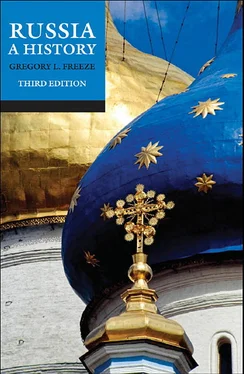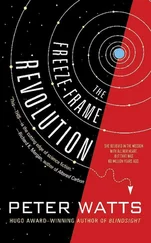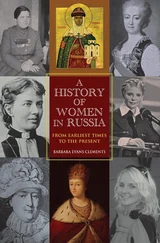Not only ethnicity but another key aspect of culture—religion—has figured prominently in shaping Russia and its identity. On the one hand, ‘Russian’ seems coterminous with ‘Eastern Orthodoxy’—perhaps not in a real sense since the symbolic conversion of élites in 988, but certainly since the ‘Christianization’ of the popular classes in the late medieval and early modern periods. One key difference between Russia and the West has been the role of religion: in contrast to the dechristianization that beset Western Europe in the nineteenth and twentieth centuries, Russian Orthodoxy retained a firm grasp on popular culture, with observance rates several times higher than in the West. Even Stalin’s anti-religious campaign in the 1930s proved futile; the Church recovered its presence, despite persecution, in the remaining years of the Soviet regime and experienced a major upsurge in post-Soviet Russia. But this multi-ethnic land is also multi-confessional, with an array of other Christian and non-Christian subjects. The non-Orthodox became increasingly numerous and assertive in the Imperial period, especially from the mid-nineteenth century, and survived the Stalinist and post-Stalinist anti-religious campaigns to comprise a significant element in post-Soviet Russia, with approximately one-sixth of the population professing Islam in addition to many other, if smaller, religious communities.
To cope with so complex, dispersed, and heterogeneous a country, for centuries the élites have engaged in a protracted, laborious process of state-building. That process commenced in the Kievan era, with the creation of the first institutions and the adoption of the first law code, but the results were mainly symbolic; governmental institutions remained incomplete and vulnerable, quickly dissolving under the impact of invasion from without and revolution from within. The main phase of building state institutions came after the sixteenth century, but took on a systematic, conscious form in the eighteenth century with the Petrine reforms. Even the wilful rulers of the eighteenth and nineteenth centuries found it difficult to construct, finance, and staff the instruments of rule; compared to contemporary European states (and contrary to Gogolian stereotypes), Russia was woefully undergoverned, a state where the autocrat had unbounded authority but limited operational power. Only in the late nineteenth century did the regime construct a more substantial set of institutions and impose its will, and its law, on the everyday lives of the tsar’s subjects. That all ended in the 1917 revolution and the tumultuous years of civil war that followed; it took the Bolsheviks more than a decade to re-establish some semblance of rule, but only incompletely—as the chaos and irrationality of Stalinist rule in the 1930s would attest. The ensuing decades sought to build a more efficient state, but continuously encountered the same set of recurring problems—a dearth of human and material resources, the mind-boggling complexity of ruling so immense and so diverse a realm. The year 1991 brought not only the break-up of the USSR but the disintegration of central government; Russia became a ‘failing state’, without the rudimentary capacity to make and implement law. Only the accession of Putin in 2000 brought a renewed attempt to re-establish ‘law and order’—to adopt laws, implement them, and ensure what Putin grandiloquently called the ‘dictatorship of law’.
Power abroad has been as important as power within: great power status has long served to legitimize the authority of the privileged and the deprivation of the disprivileged. To be sure, regimes since Peter the Great have also invoked ‘common weal’ ( obshchee blago ), be it prosperity in the Imperial period or egalitarianism in the Soviet era. But power abroad has been a significant theme, first in ensuring security in the medieval period and safety on an open plain visited by threatening powers, whether the Mongols from the East or crusaders and Catholics from the West. International status became far more important in the modern era, especially after Peter and Catherine raised Russia to the status of a great power in the eighteenth century; the triumph over Napoleon in 1812 then elevated Russia from a great power to the great power, and for the next four decades no European state seemed to wield its resources, could field an army of its size, and could remain immune to the bacillus of revolution. The defeat in the Crimean War inaugurated nearly a century of diminished status, not to be reversed until the Second World War made the USSR one of the two superpowers. For another half-century, at great cost and with diminishing return, Moscow clung to that superpower status, but it all came to an inglorious end in 1991. The Yeltsin years saw a marginalized Russia, barely able to contain insurrection from within, let alone play a major role on the world stage. It was only with the Putin era, when economic growth allowed the rebuilding of the military and reassertion of geostrategic power, that Russia was able to return to the rank of a great power. Whatever fate holds for Russia, I hope that this volume will enable readers to look upon Russia with greater understanding, to dispense with the Cold War (and pre-Cold War) stereotypes that have so distorted our vision and marred our relations with Russia.
GREGORY L. FREEZE
Brandeis University 2009
John T. Alexanderis professor of history at the University of Kansas. His major publications include Autocratic Politics in a National Crisis (1969), Emperor of the Cossacks (1973), Bubonic Plague in Early Modern Russia (1980), and Catherine the Great (1989). He is currently preparing a comparative biography of Peter the Great and Catherine the Great, and a study of the four Russian empresses of the eighteenth century.
Gregory L. Freezeis the Victor and Gwendolyn Beinfield Professor of History at Brandeis University. His major publications include The Russian Levites: Parish Clergy in Eighteenth-Century Russia (1977), The Parish Clergy in Nineteenth-Century Russia: Crisis, Reform, Counter-Reform (1983), and From Supplication to Revolution: A Documentary Social History of Russia (1988). He was director of the Russian Archival Project and edited the volume on the pre-revolutionary holdings of the State Archive of the Russian Revolution ( Fondy Gosudarstvennogo Arkhiva Rossiiskoi Federatsii po istorii Rossii XIX-nachala XX vv. [ 1994 ]). He is currently completing two works, one on ‘Religion and Society in Modern Russia, 1730–1917’, and the other on ‘Bolsheviks and Believers: Russian Orthodoxy in Soviet Russia, 1917–1941’.
William C. Fuller, Jr.is professor of strategy and power at the United States Naval War College. He is the author of Civil–Military Conflict in Imperial Russia, 1881–1914 (1985), Strategy and Power in Russia, 1600–1914 (1992), and The Foe Within: Fantasies of Treason and the End of Imperial Russia (2006).
William B. Husbandis professor of history at Oregon State University. He is author of Revolution in the Factory: The Birth of the Soviet Textile Industry, 1917–1920 (1990) and ‘Godless Communists’: Atheism and Society in Soviet Russia, 1917–1932 (2000); he also edited The Human Tradition in Modern Russia (2000). He is currently working on a study, tentatively entitled ‘Nature in Modern Russia: A Social History’.
Nancy Shields Kollmannis professor of history at Stanford University. A specialist in Russian social and political history, she has written Kinship and Politics: The Making of the Muscovite Political System (1987) and By Honor Bound: State and Society in Early Modern Russia (1999).
Читать дальше












